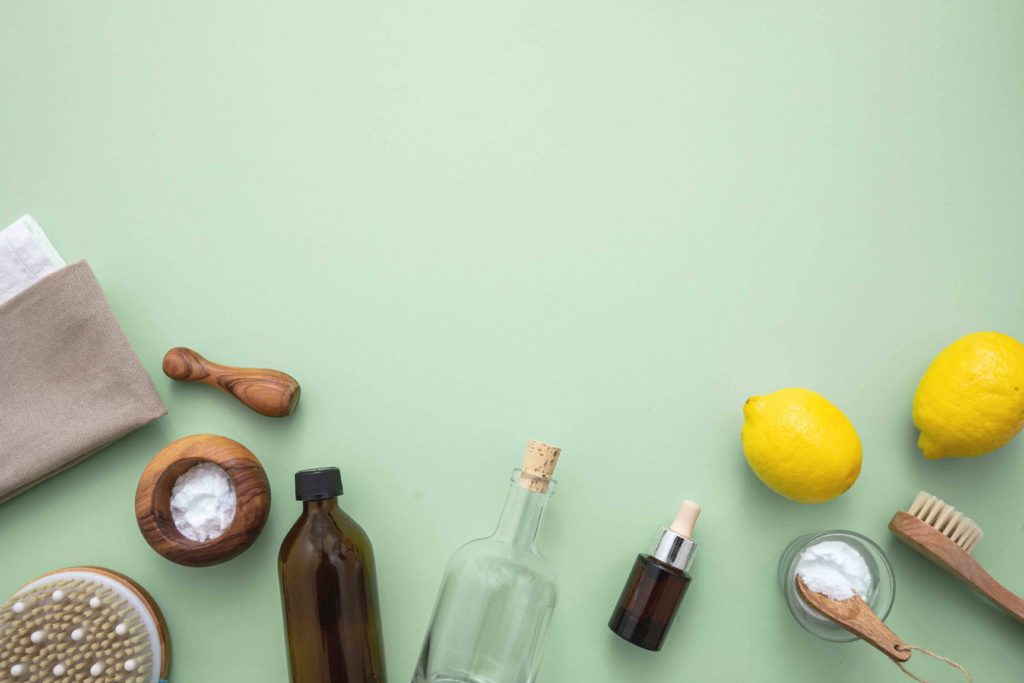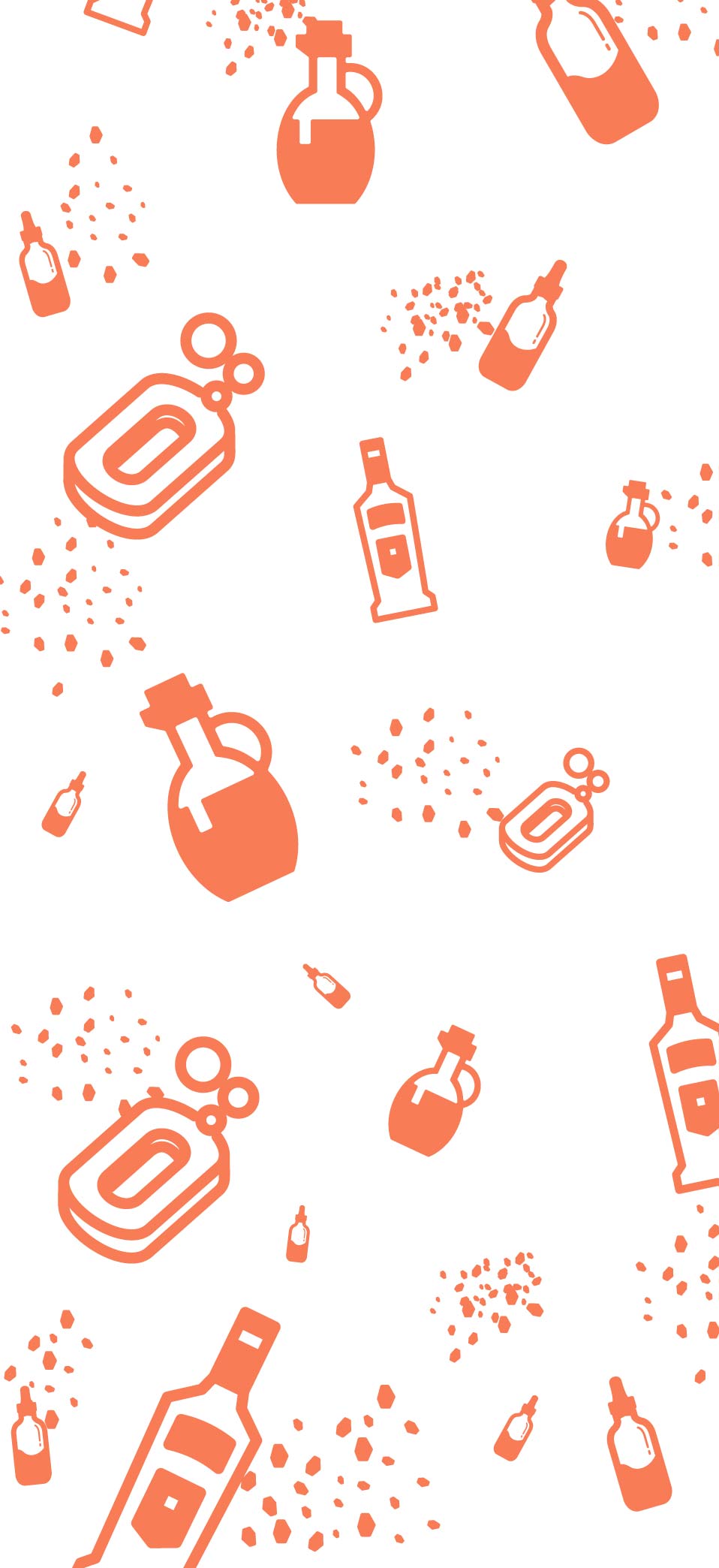When it comes to cleaning your kitchen, the products we use on a daily basis are far from “clean”. In fact, not only do many big-brand cleaning products contain chemicals that are harmful to the environment and human health, but they’re almost always packaged in plastic or contain plastics.
The good news, however, is that there are plenty of alternatives available, with a whole host of time-tested zero waste or low waste options that are simple to make at home. Take a look at what’s needed to start concocting DIY zero-waste cleaning products alongside some of our favorite zero-waste recipes to get the kitchen chemistry lab bubbling away.
Zero-Waste Recipes – Basic Ingredients
Perhaps the most surprising fact about DIY zero-waste cleaning products is that they can generally be made from just a handful of readily available, recognizable, non-toxic ingredients. Unlike off-the-shelf products that typically contain chemicals and compounds, our zero-waste cleaning recipes are designed to make use of simple, natural ingredients commonly found in any supermarket or store.
Additionally, with the exception of the most demanding applications, they are powerful enough to be used across a broad range of different cleaning tasks—from doing the dishes to mopping the floor. Here’s a selection of ingredients that will give you a solid foundation when it comes to creating your own DIY zero-waste products.
- Alcohol – Whether pure ethanol or cheap vodka, alcohol is a great zero-waste cleaning ingredient thanks to its antiseptic and bactericidal properties. Additionally, its fast evaporation times make it ideal for cleaning glass and other surfaces.
- Soda Crystals – There are a huge range of naturally occurring soda crystals that make excellent DIY cleaning ingredients. Washing soda and baking soda are two of the most common, appearing in many zero-waste cleaning recipes, however, percarbonate and even borax are also naturally occurring—although both should be used with care.
- Essential Oils – Used to add natural fragrances to your DIY zero-waste recipes, you can choose from a huge range of different oils depending on your preference. It’s worth remembering that certain oils offer other useful properties too. For example, orange oil is a natural degreaser while tea tree oil offers excellent antiseptic properties.
- Vinegar – Like alcohol, vinegar can dissolve mineral deposits, dirt, grease, and grime as well as provide anti-bacterial properties thanks to the acetic acid it contains.
- Castille Soap (bar soap) – Castille soap is a vegetable oil-based soap that originated in Spain. It offers excellent cleaning properties in any application and is completely natural, with the added benefit of containing no animal products which makes it ideal for vegans.
Zero-Waste Cleaning Product DIY Recipes
Very little is set in stone when it comes to zero-waste cleaning recipes, so you should definitely feel free to experiment and channel your inner kitchen chemist to find something that works for you.
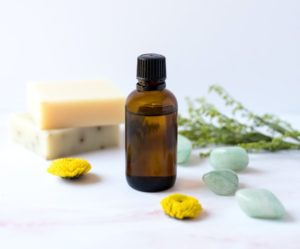
Zero-Waste Dishwashing Liquid Recipe
One of the most frequently used cleaning products in the kitchen, but one that is nearly impossible to buy in anything but a plastic bottle. Washing-up liquid can be made at home with just a few ingredients, including bar soap, washing soda, and glycerin, with essential oils added for extra cleaning power and a refreshing fragrance. Getting the right consistency can be a challenge depending on what kind of bar soap you use and how you mix it, but here are great tips to get you started.
Things you’ll need:
- Water
- Castille soap
- Washing soda
- Essential oils
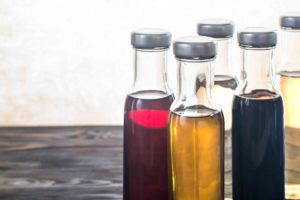
Zero-Waste Dishwasher Detergent Recipe
Anyone lucky enough to have a dishwasher probably won’t need all that much dishwashing liquid. However, one thing you simply cannot live without is dishwasher detergent, and finding a zero-waste alternative will cut out packaging as well as microplastics entering the water from pods or tablets.
All you’ll need is washing soda, baking soda, citric acid, and salt, all of which should be available from most supermarkets in eco-friendly packaging. It’s as simple as combining the ingredients in a jar and shaking them to mix. If you’re feeling more adventurous you can also try making your own dishwasher tablets by adding a little vinegar and pouring it into an old ice cube tray. Either way, you’ll find a wealth of great info on the process here.
Things you’ll need:
- Water
- Salt
- Vinegar
- Baking soda
- Citric acid
Zero-Waste All-Purpose Cleaner Recipe
An all-star in the kitchen, the best all-purpose zero-waste cleaning recipes can be used on tables, counters, the microwave, and even the floor, yet contain no harmful chemicals while also reducing packaging to…well…zero.
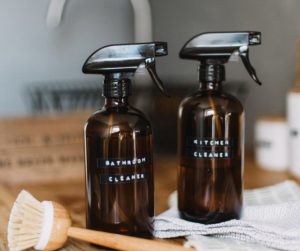
There are many different all-purpose cleaner recipes, but in general, they contain some combination of white vinegar, distilled water, surgical spirit or a high-proof alcohol like vodka, and essential oils. Mix them together in a spray bottle and give it a good shake each time before use.
Please note, however, that you should avoid using vinegar on marble, granite, or other stone countertops as this can cause damage. Luckily there is another DIY cleaner recipe here that works perfectly for stone and other porous materials.
Things you’ll need:
- Vinegar
- Distilled water
- Alcohol
- Essential oils
Zero-Waste Drain Cleaner Recipe
Cleaning your drains is usually pretty important, and if you can remember to do it regularly then you’re less likely to suffer a blockage that requires those highly toxic chemical cleaners or, worse, an emergency plumber! Luckily, simple drain cleaners are easy to make and can help you keep those pipes free of gunk.
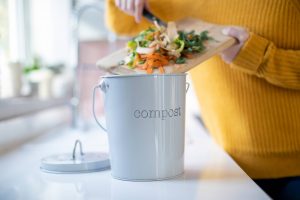
Half a cup of baking soda and half a cup of vinegar poured directly down your plughole will start a fizzy chemical reaction that will begin to loosen anything stuck to the pipes. An hour later you can pour some boiling water down and flush away anything that’s come loose.
However, for anyone interested in home composting then integrating the bokashi system into your kitchen is a great way to kill two birds with one stone. Composting with bokashi not only reduces food waste to zero, but the liquid byproduct created during the fermentation process is the ideal drain cleaner, removing drain detritus while also adding beneficial bacteria to your septic system or the wider sewerage system.
Things you’ll need:
- Vinegar
- Baking soda
- Bokashi Composting System (optional)
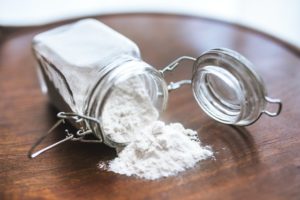
Zero-Waste Scouring Powder Recipe
Commercial powders often come in plastic or laminated paper tubes and contain harsh chemicals, but many things can actually be cleaned by simply scrubbing with baking soda and oil instead. For tougher stains, mix baking soda with washing soda, which is a powerful natural cleaner often used in laundry powder.
If you can’t find washing soda, it’s also easy to make at home, and the true kitchen chemists will love the science behind it. Baking soda has the chemical composition of NaHCO3. Washing soda is Na2CO3. So, simply by heating baking soda to around 400 degrees Fahrenheit, you create a chemical reaction that releases the water (H20) and carbon dioxide (C02), turning humble baking soda into useful washing soda!
Things you’ll need:
- Baking soda
- Washing soda
- Vegetable oil
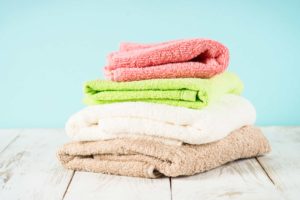
Zero-Waste Cleaning Wipes Recipe
There’s no denying that disposable disinfectant wipes are convenient, however, they also represent the very worst kind of single-use economics—a product made to complete one task and, more often than not, manufactured from non-biodegradable, non-recyclable materials that end up in landfill releasing microplastics and other harmful elements into the environment.
The good news is, making your own is easy, and they can be just thrown into the washing machine once you’ve finished with them. Additionally, they clean and mop infinitely better than those disposable versions. All you need is a bunch of dishcloths or washcloths (preferably organic cotton), white vinegar, lavender essential oil, lemon essential oil, tea tree oil, and 2-3 cups water. The full recipe is here, and if you’re feeling particularly zero-waste today, you can also reuse or repurpose an old container to create a dedicated cleaning wipe dispenser.
Things you’ll need:
- Washcloths/dishcloths
- Vinegar
- Water
- Essential oils
- Repurposed dispenser
Additionally, for more inspiration on going zero waste at home, check out our tips and tricks and subscribe to our blog, or if your business is committed to going zero waste, then contact one of our TRUE Waste Advisors for information and insight tailored sustainability goals.

